

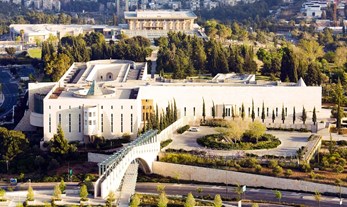
Overriding the People of Israel
Written By: Prof. Suzie Navot
If Netanyahu's new government implements its plans, human rights may soon depend on majorities. Israel's delicate political structure makes this possible.

In Bnei Brak I Founded the Shtetl State
Written By: Eliyahu Berkovits
We must not allow autonomous Haredi enclave to continue to develop within the State of Israel – it will be to everyone’s detriment.
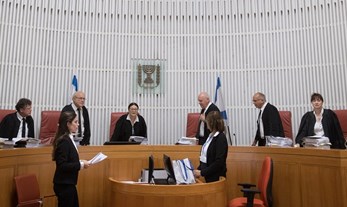
Changing the System for Judicial Appointments—Only with a Broad Consensus
Written By: Dr. Guy Lurie
Despite controversy, changes to the Judicial Selection Committee, must be made with broad consensus - and not by slimmest of majorities.
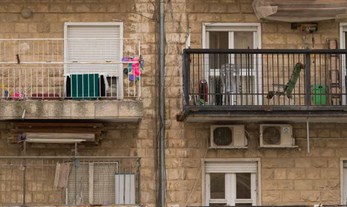
Working Remotely Opens a Window of Opportunity in Housing
Written By: Daphna Aviram-Nitzan
Dafna Aviram-Nitzan, Director of the Center on Governance and the Economy at the Israel Democracy Institute notes that “The option for working remotely opens up a window of opportunity for purchasing housing in the peripheral areas of Israel”

Education toward Democratic Values - Survey
Written By: Dr. Tammy Hoffman
Considering current political tensions and tendencies regarding the education system, we asked the Israeli general public questions that can reflect public opinion concerning some possible predispositions that stake holders should take into consideration. Especially regarding the role of teachers in a politically divided reality, the role of the education system in promoting education for democracy and a reflection about the inherent divisions in the system and the challenges they pose to society as a whole.
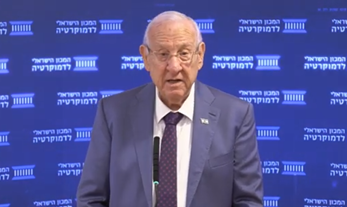
President Reuven (Ruvi) Rivlin Speaking at the Judicial Reform Conference 2022
President Reuven (Ruvi) Rivlin speaking at the Fix It Don't Destroy It Judicial Reform Conference at the Israel Democracy Institute, December 2022.
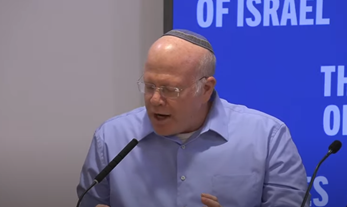
Israel's Judiciary: Reform or Ruin
Is Israeli democracy in danger?
Prof. Amichai Cohen, Senior Fellow at the IDI's Center for Security and Democracy and Adv. Shlomit Ravitsky Tur-Paz, Director of the Joan and Irwin Jacobs Center for Shared Society join in a lively discussion hosted by The Times of Israel, delving into all sides of the looming High Court override clause proposal.
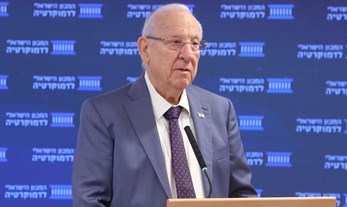
Every Democratic System Needs Moderation and Balance
Written By: Reuven Rivlin
The following are the opening remarks by President Reuven Rivlin, IDI Honorary Chair and Joan and Irwin Jacobs Distinguished Fellow, at the special #FixIt_Don'tDestroyIt conference on the implications of the proposed judicial reforms.
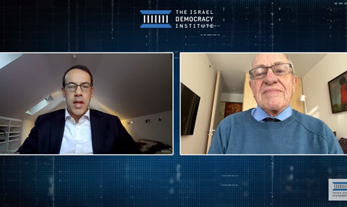
Prof. Alan Dershowitz in conversation with Dr. Jesse Ferris at IDI’s Judicial Reform Conference
Prof. Alan Dershowitz in conversation with Dr. Jesse Ferris at IDI’s Judicial Reform Conference 2022.
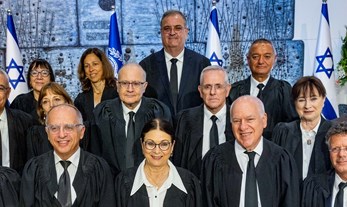
How Israeli Judges Are Appointed: Questions and Answers
Written By: Dr. Guy Lurie
Why it is a bad idea to allow the coalition the deciding voice in the appointment of Supreme Court justices? Is it true that in Israel, judges appoint themselves? The complete guide to the impending constitutional reform.
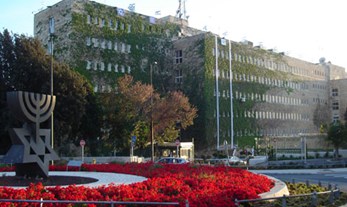
Splitting Up Ministries Will Undermine Effective Governance and the Public Service
Written By: Dr. Nadiv Mordechay
The trend to divvy up the government in political agreements has reached new heights - with detrimental impact on the ministries ability to provide high-quality service
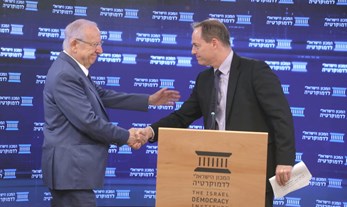
#Fix It, Don’t Destroy It
The Israel Democracy Institute’s special conference today (December 12th) focused on the implications of the proposed judicial reforms that have been proposed by members of the incoming coalition.

What Are the Challenges to Israel’s Democracy?
Written By: Yohanan Plesner
Israel still has no constitution, and the separation of powers seems fragile. What challenges will Israel’s democracy face in the next government?
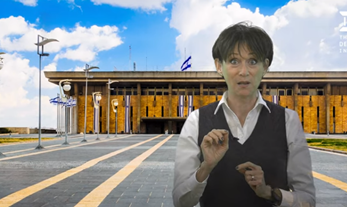
Prof. Suzie Navot Explains the Override Clause
Why is the override clause at the heart of the forthcoming coalition's agenda and how does this relate to civil rights in Israel? Prof. Suzie Navot, Vice President of the Israel Democracy Institute explains the role of the Supreme Court in Israel's democratic system in just over two minutes.
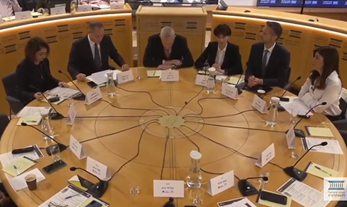
Security and Democracy Conference 2022 Summary Reel
Security and Democracy Conference 2022 Summary Reel with English Subtitles
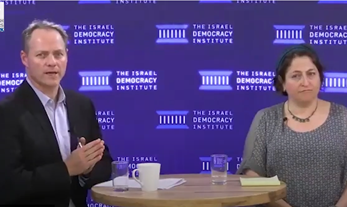
Israel's New Government - IDI - Jewish Funders Network
Israel’s new government has been sworn in and it seems that the electoral crisis of the last four years has come to an end. The last election saw the rise of the National Religious Party and the two ultra-Orthodox parties and their representatives are expected to hold key positions in the new cabinet. Join Israel Democracy Institute President Yohanan Plesner and Shlomit Ravitsky Tur-Paz, Director of IDI’s Joan and Irwin Jacobs Center for Shared Society, in conversation with Dr. Jesse Ferris, Vice President of Strategy, as they analyze what led to this election result and what it may mean for Israel’s future.
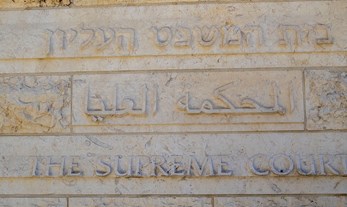
Supreme Court Should Retain Power – Survey
Written By: Prof. Tamar Hermann, Dr. Or Anabi
The majority of Israelis think that the Supreme Court should retain its ability to strike down legislation that contravenes the country’s Basic Laws – and only 16% said that the Judicial Selection Committee that appoints justices should be politicized by increasing the number of elected officials serving on it.

61 Cats Guarding the Cream
Written By: Dr. Amir Fuchs
The optimistic hope that the majority will not take advantage of its power to perpetuate its rule is akin to leaving the cream to be guarded by 61 cats. The temptation is just too strong.

Israel's Next Government Must Push Climate Legislation
Written By: Daphna Aviram-Nitzan, Itamar Popliker
The impact of the climate crisis on the well-being of Israel’s citizens is to a large extent dependent on the politicians’ coming to grips with the issue.

Conference on National Security and Democracy-Day 2
On the second day of the conference MK Gadi Eisenkot spoke on military service for all young Israels saying “Instead of scrapping the conscription law, all young Israelis 18 years and over can serve.”

Jewish Israelis and the IDF in 2022 - A Special Survey
Written By: Prof. Tamar Hermann, Dr. Or Anabi, Dr. Eran Shamir-Borer, Prof. Amichai Cohen, Dr. Idit Shafran Gittleman
Ahead of the annual 2022 National Security and Democracy IDI published a special survey to examine the views of Jewish Israeli on a series of issues relating to their relationship with the IDF and the country’s security challenges. The survey found that while there is wide support for opening the ranks to women in combat units and a large plurality would prefer that their children serve in the IDF’s technological units.
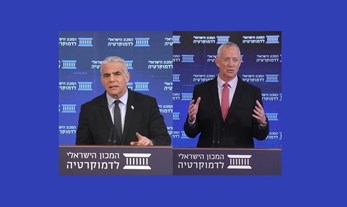
Conference on National Security and Democracy Day One
Prime Minister Yair Lapid and Defense Minister Benny Gantz Address IDI’s 2022 Conference on National Security and Democracy

The Proposed High Court Override Clause Will Reverse Gender Equality Gains
Written By: Adv. Anat Thon Ashkenazy
The new coalition's shortage of women and its proposed High Court override clause are a danger to the struggle for gender equality in Israel.

Judicial Reform in Israel
Written By: Prof. Suzie Navot
In this edited transcript of her conversation with BICOM Director Richard Pater, Vice-President of Research at the Israel Democracy Institute Professor Suzie Navot argues that judicial reforms proposed by the right-wing bloc – to Knesset override of the Supreme Court, executive immunity, and the appointment of judges – threaten Israeli democracy and the already fragile separation of powers.
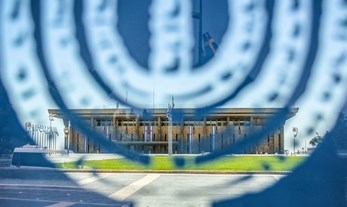
The Relations between the Coalition and the Opposition in the New Knesset: Restoring the Crown to its Former Glory
Written By: Dr. Assaf Shapira
With regards to the relations between the Coalition and the Opposition in the new Knesset - we must restoring the crown to its former glory

The “Norwegian Law”: Problematic, Yes—But a Necessary Evil
Written By: Dr. Assaf Shapira
The “Norwegian Law” has many troubling and significant downsides - however Israel's parliament is simply too small.

The Override Clause—Canada and Israel
Written By: Prof. Tsvi Kahana
Democracies ensrhine onstitutional rights, and give the court the power to protect them, out of concern that the legislator may act rashly, or even tyrannically - so then why should we "override" the court's authority - when we have no other constraints
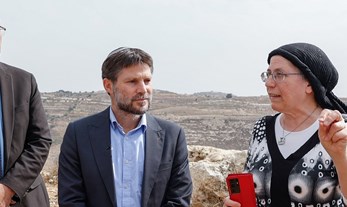
Disbanding of the Religious Zionism Faction
Written By: Dr. Assaf Shapira
Joint lists that fall apart quickly often do more harm than good, heightening political divisiveness and instability

Precautionary Savings – It's High Time
Written By: Prof. Karnit Flug, Prof. Eugene Kandel
The majority of the population in Israel lacks significant precautionary savings and thus are not capable of dealing with Mega-Macro Shocks - mandatory precautionary savings should be put in place for all citizens for use during such a crisis.
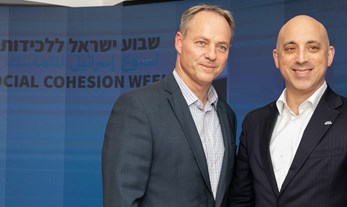
Mamlakhtiyut in Israeli Society and Politics
The conference focused on questions pertaining to the Ben Gurion-inspired concept of Mamlakhtiyut (“Statism”) and how its values can be fostered and made relevant to the current realities in Israel today. The conference, organized by IDI and ADL was part of the Anti-Defamation League’s (ADL) Israel Week for Social Solidarity and coincided with the publication of IDI’s Mamlakhtiyut in the Twenty-First Century.

